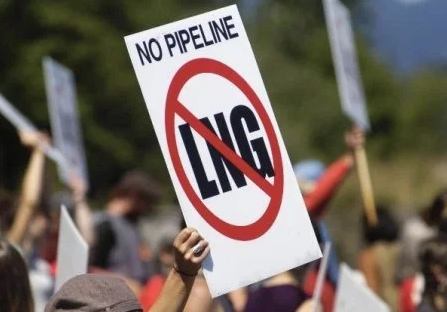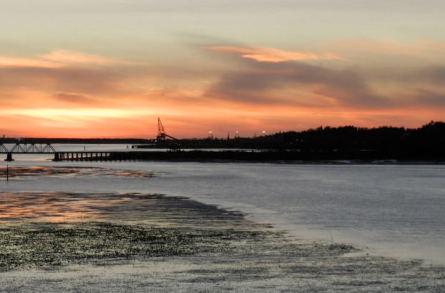April 29, 2019
By Ted Gleichman
The Federal Energy Regulatory Commission (FERC) has published its latest Draft Environmental Impact Statement on Jordan Cove & Pacific Connector. This opened up a comment period that will close Friday, July 5 (right in the middle of a long holiday weekend for a lot of folks).
In May and June, we will be providing guidelines on different ways to submit comments on the Draft Environmental Impact Statement, highlighting key issues that the Trump Federal Energy Regulatory Commission is ignoring, distorting, and failing to address. (With all attachments and appendices, the Draft Environmental Impact Statement comprises some 6,000 pages.) FERC plans to produce a Final Environmental Impact Statement late this fall, and is scheduled to vote on whether to approve the $10 billion Jordan Cove and Pacific Connect project in early 2020. In the meantime, here are some key push-points to keep in mind:
-
We can’t trust Federal Energy Regulatory Commission.
The Trump regime has taken a pretty lousy agency and made it much worse. Federal Energy Regulatory Commission officially ignores the climate crisis in every way that it can, and has fought back hard against every effort to bring its behavior in line with the science on fossil fuels, greenhouse-gas emissions, and environmental destruction.
-
Fortunately, it’s not just about the Trump Federal Energy Regulatory Commission
Federal power against the climate is terrible, but it is not the only piece of the puzzle. States still have significant regulatory authority. The State of Oregon has direct power over key permits that Jordan Cove/Pacific Connect must have to go forward.
-
The Department of State Lands is scheduled to decide by September 20.
Oregon Department of State Lands has authority to protect state waterways of all types from damage by dredging and filling — and Jordan Cove/Pacific Connect would require a lot of that, attacking 485 waterways: the five major rivers in Southern Oregon and hundreds of tributaries, streams, and wetlands, crossing both the Cascades and the Coast Range. All the information that we have so far is that the Department of State Lands is taking this responsibility seriously. This decision date may change, but the process generally seems to be operating with adequate integrity.
-
The Department of Environmental Quality must decide by September 29.
Oregon Department of Environmental Quality must decide by September 29 whether Jordan Cove/Pacific Connect complies with state approval authority under the Clean Water Act (Section 401). As with the Department of State Lands, all the information that we have so far is that the Department of Environmental Quality is taking this responsibility seriously. This decision date is a hard deadline, and the department is working hard to meet it accordingly.
-
Our statewide coalition fighting Jordan Cove/Pacific Connect continues to grow.
The struggle for climate sanity and a just transition continues to strengthen, among dozen of organizations. We’ve reached critical mass among grassroots activists and climate leaders on an understanding of the insanity of new fossil fuel infrastructure like Jordan Cove. Comment periods for the Department of Environmental Quality and Department of State Lands, last year and this, generated almost one hundred thousand comments to the State of Oregon — a totally unprecedented number! Over 50,000 came through Sierra Club. Early this year, more than a thousand people attended Department of State Land hearings in Southern Oregon and Salem — also unprecedented.
-
Sierra Club plays a vital role.
The Oregon Sierra Club has been a key part of this struggle for more than a decade, with critically-important assistance from National Sierra Club. Sierra has been supporting the the front line groups, working for environmental justice, and staying deep in the regulatory and legal battles in various ways. That won’t change.

